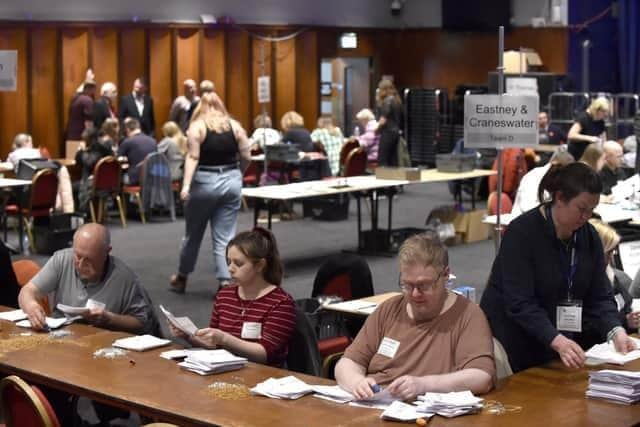People in Portsmouth's most deprived ward hit the hardest by new photo ID voting rules
and live on Freeview channel 276
A review of the May city council elections, which will be discussed by the council’s cabinet next week, shows that dozens of people in Charles Dickens failed to meet the new ID requirements, although turnout was one of only three wards not to decline this year.
FOR MORE READ: More than 200 people turned away from polling stations in Portsmouth for not meeting new rules
Councillor Cal Corkery, the independent councillor for the ward who was re-elected in May, said the figures were not a shock and mirrored fears about the impact of the new rules aimed at reducing voter fraud.


Advertisement
Hide AdAdvertisement
Hide Ad‘It wasn’t a surprise to see those numbers,’ he said. ‘There were plenty of people who supported us but didn’t have ID to be able to vote and although we were helping people get ID, we couldn’t for everyone.
‘We know the poorest in society will be less likely to have any form of voter ID so it was always going to be a big issue.
‘But it was encouraging to see that turnout stayed at roughly the same level while most other areas saw it reduce. It showed people were engaged and wanted to support us.’
Turnout in the ward fell by just 26 people, beaten only by Central Southsea with a 21-vote reduction and Hilsea where the number of votes cast increased by 169 this year.
Advertisement
Hide AdAdvertisement
Hide AdThe introduction of the requirement to show ID in order to vote has been controversial with opponents describing it as ‘voter suppression,’ although the government said they were needed to tackle fraud.
Speaking at the election count, the-then leader of the council, councillor Gerald Vernon-Jackson, said the new rules had ‘undoubtedly’ contributed to an overall 1.6 per cent fall in turnout.
The review found while turnout at polling stations fell this year, the number of postal votes cast was stable.
‘It is likely that some voters did not vote because they did not have a form of accepted photo ID but it is hard to quantify the extent of this issue,’ the council report says. ‘The new requirements also meant that some voters will have needed to plan their visit to the polling station because…most voters do not routinely carry, for example, their passport.’
However, it added that other factors, ‘such as voter apathy, the national political outlook and local political campaigning’ may also have had an effect.